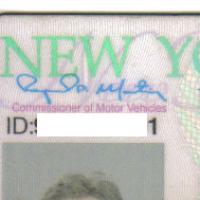Contribuții/Mesaje: 13
Limbă: English
Josh (Arată profil) 4 mai 2007, 02:08:41
I mean, of course this site was of some help, if not all... but what steps did you take on learning it and getting it down fluently?
I myself am using the study plan and following that... but did you do something else? Did you say, follow 3 lessons from each different method (the direct method with pictures, the ana pana courses, etc...).
I just wanna know how people have learned it in the past and which ones help out the most.
Thanks all!
-Josh
mnlg (Arată profil) 4 mai 2007, 06:42:58
Josh:What did you go through to learn it fluently?Lots and lots of practice and taking part in international meetings.
I mean, of course this site was of some help, if not all...Actually it wasn't
 I became fluent before the existence of this site.
I became fluent before the existence of this site.If you already know the grammar just try your best to use the language in your free time. Read books, translate stuff, find a penpal (or more than one). In my case, practicing its written form made me also fluent in speech, but perhaps for English speakers this is less true.
erinja (Arată profil) 4 mai 2007, 15:06:17
Some people will surely see personal bias in this but I think it's important to do Ana Pana or a course like it; that is, something involving free response (not multiple choice) and corrected by an actual person, not a computer. It allows you to play around with the language a bit, use the language to talk about your personal experiences, and get the advice of a tutor. The courses with automatic responses are fine and they are good for teaching reading comprehension and grammatical forms, but especially with a very flexible language like Esperanto (with more than one correct way to say something), the advice of a tutor, plus the ability to write up your own texts and have them corrected, is important.
------------
I personally became fluent before the existence of this site, like mnlg.
I reached a decent level of grammar and vocabulary through having several penpals and doing quite a bit of online chatting. I had very little chance to get into an Esperanto speaking setting until I'd already achieved a decent level of written Esperanto.
I wouldn't really call myself fluent until I had gotten good at speaking, though, and for me that took some time in an immersion setting. Even just a few days or a week of Esperanto-only can make a huge difference in your speaking ability. The speaking came to me more slowly than the writing. Being at international events is nice because it really forces you to use your Esperanto. At "national" events, the ease of practicing depends somewhat on what country you're in and what group you're currently with. In the US, most Esperanto groups (in my experience) conduct their meetings mostly in Esperanto, with a little bit of token English for the beginners. In some European countries, this isn't necessarily the case. You sometimes encounter a point of view like "We're all from [whatever country], so why speak Esperanto together?". In the US, conversely, people are normally thrilled even to have the chance to practice, so they tend to speak Esperanto.
I don't know if you're able to attend events by the Esperanto group in the Carolinas, but that would probably help.
Also, although speaking Esperanto helped a lot with my speed and learning to think in Esperanto, I found that reading improved my vocabulary a lot. News articles are usually the easiest grammatically (look at www.liberafolio.org or the Esperanto wikipedia to find stuff written in this style). Novels and short stories are more grammatically difficult and you will learn more vocabulary by reading them. I remember learning the word "korbo" ("basket") from a novel - words like that don't come up very often in everyday speech, but it's good to know them, and they do appear works of fiction much more than in chatting with your friends. Once I started getting into Esperanto settings, I also realized that my knowledge of words for household objects, plants, and animals was lacking, and things like novels helped with that as well.
Kwekubo (Arată profil) 5 mai 2007, 00:48:54
 I thought I only began in November 2002 or thereabouts, but I just typed "esperanto" into my email inbox and I found that I had signed up as a translator for the TEJO website by the first week of January! I'll have to go into my archives now to try and work out when I first downloaded those files...
I thought I only began in November 2002 or thereabouts, but I just typed "esperanto" into my email inbox and I found that I had signed up as a translator for the TEJO website by the first week of January! I'll have to go into my archives now to try and work out when I first downloaded those files...But I digress.
 lernu! was at any rate only just beginning as I was starting to learn E-o and I didn't have internet access at home so I couldn't have used it; for the most part I made use of a book (Teach Yourself Esperanto, which is out of print for the last year or two I believe), a short downloadable introductory course called Esperanto Viva! and John C. Wells' dictionary (also out of print at the moment). I read through texts in Esperanto as well, from Wikipedia and other places, that I could download to a floppy disk and bring home with me.
lernu! was at any rate only just beginning as I was starting to learn E-o and I didn't have internet access at home so I couldn't have used it; for the most part I made use of a book (Teach Yourself Esperanto, which is out of print for the last year or two I believe), a short downloadable introductory course called Esperanto Viva! and John C. Wells' dictionary (also out of print at the moment). I read through texts in Esperanto as well, from Wikipedia and other places, that I could download to a floppy disk and bring home with me.I think one great strength of lernu! is the huge choice of different courses available, as Erin has pointed out. Try and find one that you can work with, and when you feel that you've got a good grasp on it, put your E-o into real practice - send emails, write Wikipedia articles, meet up with local Esperantists, post on forums. The rest will follow
 Oh, and consider getting a notebook/pad with two columns and using it to list new words, with English on one side and Esperanto on the other. That way you can look over stuff wherever you are, and it makes you get used to writing in E-o (for the longest time I had this habit of writing Y instead of J...)
Oh, and consider getting a notebook/pad with two columns and using it to list new words, with English on one side and Esperanto on the other. That way you can look over stuff wherever you are, and it makes you get used to writing in E-o (for the longest time I had this habit of writing Y instead of J...) RiotNrrd (Arată profil) 5 mai 2007, 01:03:30
The single most important thing I've done as far as learning Esperanto well is to start an Esperanto blog and write in it at least every couple of days. At first it was very difficult and time consuming (even for short entries), but as I made entry after entry the time it took became shorter and shorter, and my knowledge of grammar and vocabulary increased greatly.
I STRONGLY recommend setting up a Blogger or WordPress (my own favorite) blog and doing just what I did - write in it regularly. The entries can be short, and they can be about trivial things, but just forcing yourself to regularly post SOMETHING is well worth the effort.
Also, get yourself an English to Esperanto dictionary (I use the CEED, but there are others that some people like more - personally, I like the CEED a lot). Getting an Esperanto to English dictionary is not as important, as the Lernu vortaro works well for that 99% of the time.
Josh (Arată profil) 5 mai 2007, 02:04:14
Anyway. I'm going to do the following according to your advices (I've already done 2 1/2 of the Ana Pana series).
1) I'm going to try a wordpress blog and write in it.
2) I'll continue writing in Esperanto/keep a dictionary I make in a journal (I've already started this doing some practice in notebooks)
3) Force myself to speak/read/write it whenever possible.
-Josh
pastorant (Arată profil) 5 mai 2007, 03:20:06
My listening comprehension is sub par (not enough practical usage), and I tend to take a LONG time speaking Esperanto. (Caveman like)..but I believe I can survive my next Esperanto meeting.
My advice? Read, read, read daily.
Legu, legu. legu ĉiutage.
Josh (Arată profil) 5 mai 2007, 23:31:45
You know how imperatives/commands are verbs with -u on the end? Well... I noticed the word for go is ek... when you say Go! isn't that imperative? And if so, why is it not Eku!
RiotNrrd (Arată profil) 5 mai 2007, 23:48:57
For example, "Mi enlitiĝis" means "I went to bed." But if something happened first, I might say "Mi ekenlitiĝis, kiam...", which means "I was getting ready (or starting) to go to bed, when..."
Iri is the verb that means "go" (in the sense of movement), and the imperative would therefore be "Iru!".
"Eku!" would mean "Start!" In English, "Go!" and "Start!" mean essentially the same thing if we are at a race, but in general they don't really mean the same thing. You wouldn't say "Eku al la vendejo!", since that doesn't actually make any sense. Instead, you would say "Iru al la vendejo!" if you wanted someone to go to the store.
Josh (Arată profil) 6 mai 2007, 01:50:36
So iri is more a direction verb and ek- is more just a prefix/action verb. "Going to...", etc...






